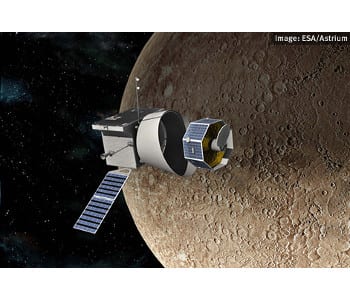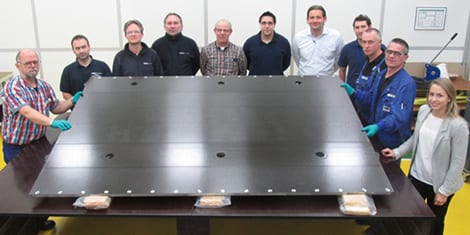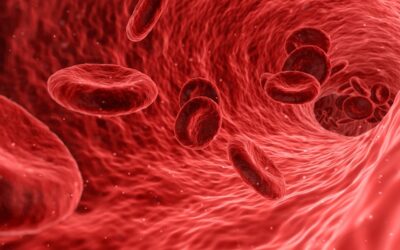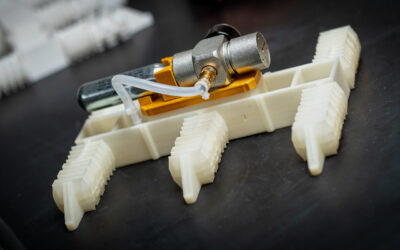GKN is a global engineering group. Approx. 50,000 people work in GKN companies and joint ventures in more than 30 countries. In July 2014 the GKN Aerospace Munich site was awarded the order for manufacturing the Mercury Transfer Module’s (MTM) solar panels for the mission to Mercury, as part of the BepiColombo Project of ESA (European Space Agency).
The BepiColombo Project will study the composition, atmosphere, magnetosphere and history of Mercury, as well as mapping the least explored planet in the inner Solar System.
As Mercury is so close to the sun, the MTM has to overcome several challenges, including temperatures greater than 300°C, the requirement for 10-times more insulation than normal satellites, thermal infrared radiation from the planet and sun and shadow cycles giving thermal cycles from -165°C up to +230°C.
With the high requirements for the materials and the manufacturing process, an extra clean room had to be set up at Munich for the production of the high technology parts.
Dietmar Czaia, GM of the Munich site, explained: “After a difficult starting phase, where we had to develop and verify the new process, a huge effort from the team ensured the first panel was successfully handed over to the customer, Airbus Defence & Space, in January 2015.
“With this delivery, GKN has supported the successful launch schedule for this mission.”
Overall, GKN in Munich will supply two testing panels, a range of small parts (Flexprint Panels, Test Coupons and Shields) and the production of 10 flight panels.


















